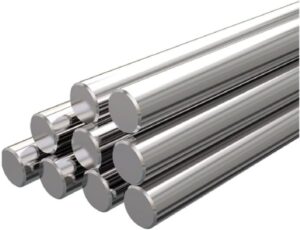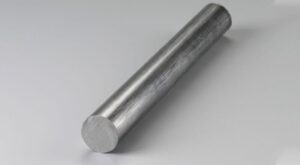Stainless steel is a versatile and widely used material known for its exceptional corrosion resistance and durability. Among the various types of stainless steel, 316 stainless steel is one of the most popular choices, particularly for applications involving round bars. In this comprehensive guide, we will delve into the properties of 316 stainless steel round bars, their applications, and why they are highly regarded in various industries.
Understanding 316 Stainless Steel
Composition and Alloying Elements
316 stainless steel is an austenitic stainless steel alloy known for its high-quality composition. Its key alloying elements include:
- Chromium (Cr): Provides corrosion resistance by forming a protective oxide layer.
- Nickel (Ni): Enhances the alloy’s resistance to acids and alkalis.
- Molybdenum (Mo): Improves resistance to pitting corrosion.
- Iron (Fe): The base metal that contributes to its strength and durability.
- Other Trace Elements: Such as carbon, silicon, and manganese, which influence specific properties.
Corrosion Resistance
One of the standout properties of 316 stainless steel round bars is their exceptional corrosion resistance. They exhibit excellent resistance to both chemical and atmospheric corrosion, making them ideal for use in harsh environments, such as marine and chemical processing industries. This resistance is primarily due to the high chromium content.
High Temperature Performance
316 stainless steel maintains its mechanical properties at elevated temperatures. It can withstand prolonged exposure to temperatures as high as 800-900°C (1472-1652°F) without significant loss of strength and corrosion resistance, making it suitable for applications in high-temperature settings.
Strength and Durability
These round bars are characterized by their impressive tensile strength and durability. They can withstand heavy loads and extreme conditions, making them suitable for structural and load-bearing applications.
Applications of 316 Stainless Steel Round Bars
Marine Industry
In the maritime sector, 316 stainless steel round bars are extensively used for various components, including ship fittings, marine hardware, and even boat propellers. Their corrosion resistance ensures longevity in saltwater environments.
Chemical Processing
The chemical industry relies on 316 stainless steel round bars due to their resistance to corrosive chemicals and acids. They are commonly used in the construction of chemical reactors, pipelines, and storage tanks.
Food and Pharmaceutical Industries
For applications requiring hygiene and resistance to corrosion, such as food processing equipment and pharmaceutical machinery, 316 stainless steel is a top choice. It is non-reactive and easy to clean, meeting stringent industry standards.
Construction and Architecture
In the construction field, these round bars find use in structural components, handrails, and architectural features. Their aesthetic appeal, coupled with their durability, makes them a preferred material for modern building designs.
FAQ
Q1: Are 316 stainless steel round bars magnetic?
No, 316 stainless steel is typically non-magnetic in its annealed state. However, some slight magnetic properties may develop after cold working or fabrication processes.
Q2: What is the difference between 316 and 316L stainless steel?
316L stainless steel is a low-carbon version of 316 stainless steel. The “L” stands for “low carbon,” and this modification reduces the susceptibility to sensitization (a form of corrosion) in high-temperature environments. Both alloys have similar properties but differ in carbon content.
Q3: Can 316 stainless steel round bars be welded?
Yes, 316 stainless steel can be welded using standard welding techniques. However, it’s essential to use low-carbon filler materials to prevent sensitization and maintain corrosion resistance.
Q4: Are there any limitations to the use of 316 stainless steel?
While 316 stainless steel offers excellent corrosion resistance, it may not be suitable for extremely high-temperature applications (above 900°C or 1652°F) where specialized alloys may be required.
In conclusion, 316 stainless steel round bars are prized for their remarkable properties, including corrosion resistance, high-temperature performance, strength, and durability. These qualities make them indispensable in various industries, from marine engineering to construction and beyond. Their versatility and reliability continue to make them a top choice for countless applications.


